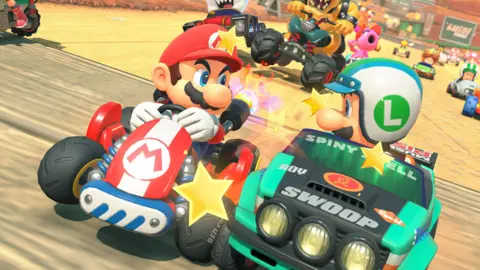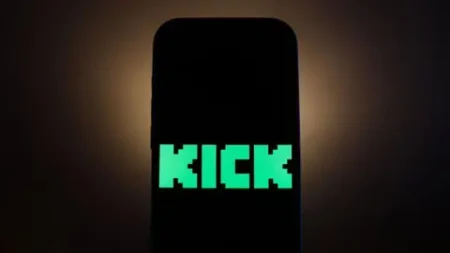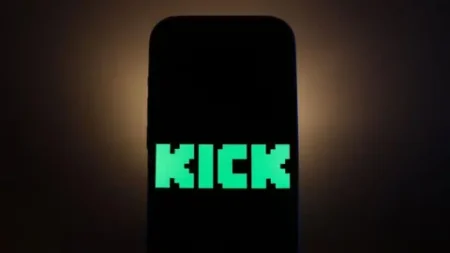### Pricing of Nintendo’s New Era: A Deep Dive into the £75 Game Trend
The video game industry is once again abuzz with discussions regarding pricing, especially following Nintendo’s recent announcement regarding their upcoming console, the Nintendo Switch 2. This release is particularly significant as it marks the return of beloved franchises, most notably with the launch of the highly acclaimed *Mario Kart World*, retailing at a staggering £74.99. This price point has brought to light a critical question within the gaming community: will the £75 retail price become the new norm for video games?
Nintendo has historically maintained competitive pricing for both its consoles and games, often appealing to families and casual gamers. With the impending launch of the Switch 2, which is priced comparably to its competitors such as Sony’s PlayStation 5 and Microsoft’s Xbox Series X, fans have been generally satisfied. However, the revelation of the hefty price tag for the new *Mario Kart* title has become a focal point of debate among gamers and industry analysts alike.
Chloe Crossan, a gaming enthusiast from Glasgow, expressed her concerns succinctly, stating that investing £75 on a single game is a significant expenditure. The problem arises from the contrast this creates; despite the popularity of Nintendo games, the increasingly high prices seem to alienate a segment of potential buyers. Crossan noted, “I guess you could argue you’re paying for a game that four people could play, but it is £75 for a game which is a lot.” Such sentiments reflect a broader unease about the affordability of modern gaming experiences.
While it remains uncertain if all titles on the Switch 2 will follow this expensive trend, experts suggest that higher prices could be indicative of a broader market shift. Christopher Dring, the editor-in-chief and co-founder of The Game Business, indicated that the trend of rising video game prices may extend beyond Nintendo. He specifically pointed to anticipated sequels like *Grand Theft Auto VI* as potential candidates for steep pricing as major franchises seek to recoup their substantial development costs. “If you’re going to see a game that’s going to be able to charge more, look out for when GTA 6 gets a release date later in the year,” Dring remarked.
Adding depth to the discussion, Dring highlighted the rising costs associated with game production, noting modern games not only take longer to make but also require larger teams and more resources. Despite these challenges, he astutely pointed out that video game prices have not kept pace with inflation since the turn of the century. To illustrate, he brought up the fact that games for the Nintendo 64 were priced at around £50 two decades ago, a sum equivalent to roughly £80 today, taking inflation into account.
While discussions around price hikes might not deter all gamers, concerns about accessibility could influence buying behavior significantly. Other gamers, like Kathryn Brown, have similarly expressed mild apprehension about the new pricing structure but remain optimistic, stating, “It’s more expensive than usual, but if it gets good reviews, and I wait until people have bought it first, then we’ll think about it.”
The retail landscape is poised for change as well. There are indications that this will be the first instance where the pricing disparity between digital and physical game formats is so pronounced. According to Dring, the majority of Switch games (roughly 80%) have traditionally been sold as physical copies, contrasting with the predominantly digital sales of competitors like Xbox. Higher costs for physical copies could inadvertently encourage a shift towards digital downloads, posing challenges for retailers who rely on physical game sales.
Moreover, Nintendo must tread carefully to avoid the pitfalls of their historical pricing missteps. The disastrous launch of the 3DS in 2011 serves as a poignant cautionary tale when a user backlash ensued due to its high price, leading to a near-immediate price reduction shortly after its release. A similar situation arose with the N64 in 1997, sparking apprehension about Nintendo’s pricing strategies.
In conclusion, as the gaming community awaits the Switch 2’s launch, it remains to be seen whether the £75 price tag for video games will set a new industry standard or represent a momentary aberration. What’s undeniably clear, however, is that Nintendo’s decisions—particularly concerning game prices—will influence customer sentiment and purchasing habits well into the future. The industry anxiously watches as the landscape shifts, particularly with iconic franchises leading the charge. As fans eagerly await additional announcements, their hopes hinge on the promise of thrilling gameplay that justifies the rising costs.










